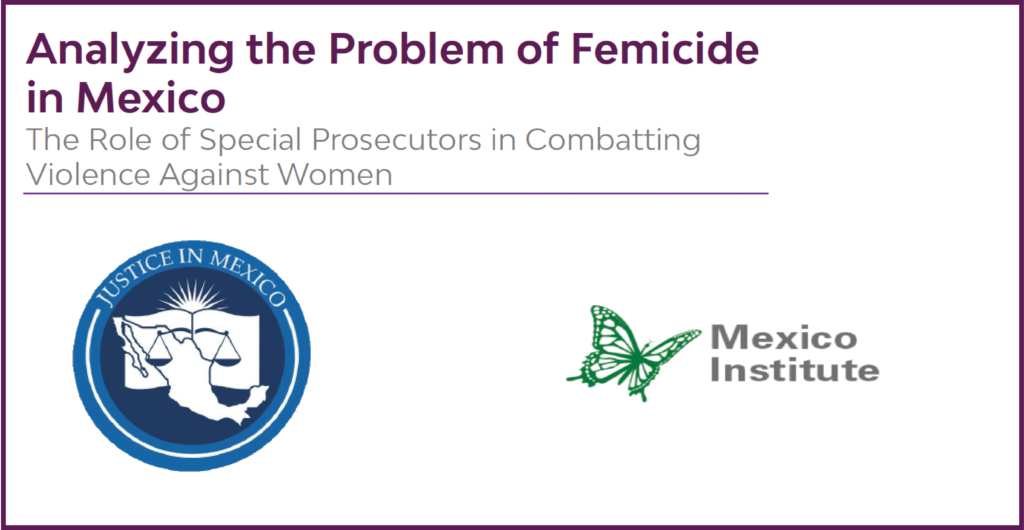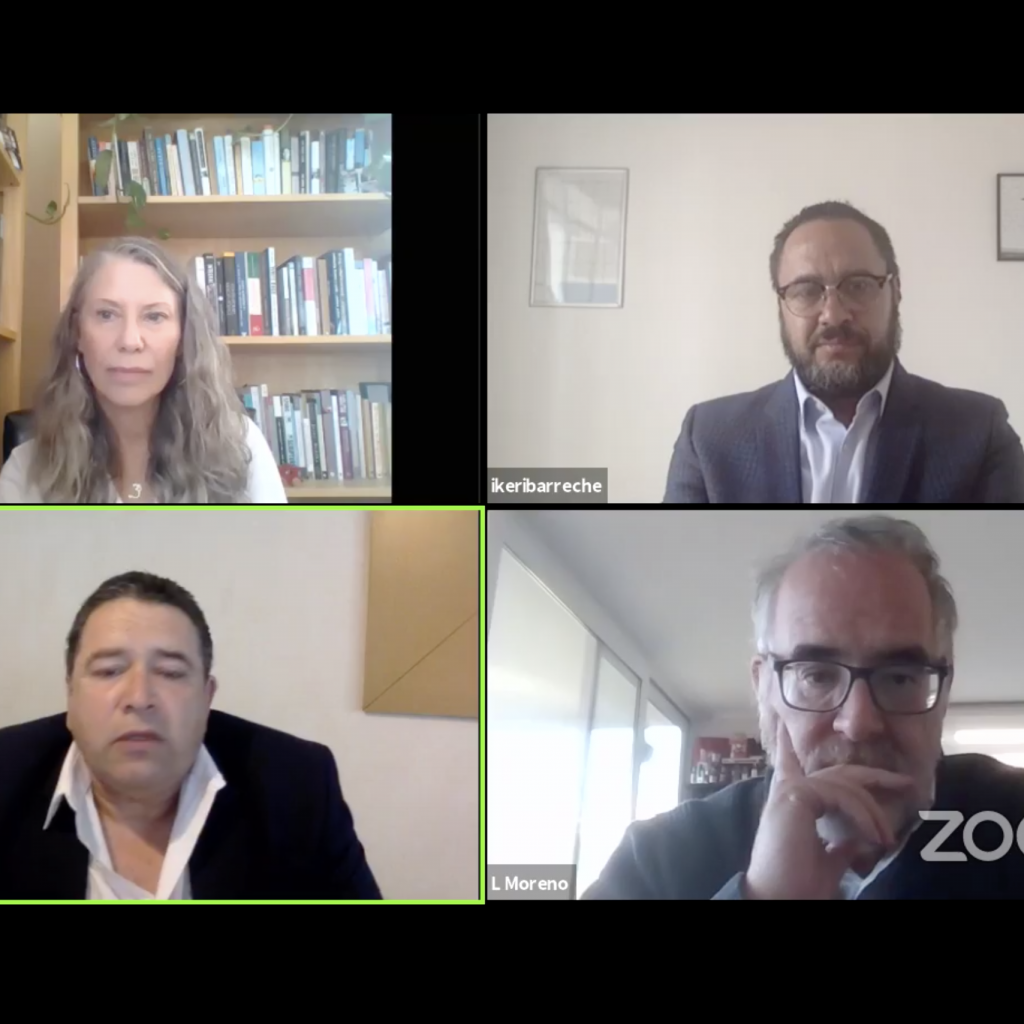04/29/2021 (written by lcalderón) – Justice in Mexico, a research-based program at the University of San Diego, is releasing a new working paper from the Justicia en Marcha series by Alfredo Ramírez Percastre entitled, “Voces del sistema acusatorio: avances y retos en su operación.” The working paper analyzes the results of Consulta, an initiative launched by Justice in Mexico to gauge the opinions of justice sector operators on issues like their role in the criminal justice process, the areas to be improved, and the accomplishments of the accusatorial criminal justice system (Sistema de Justicia Penal Acusatorio, SJPA) in Mexico.
To ensure the adequate compilation of data, Justice in Mexico designed a three-stage methodology detailed in the paper, ultimately surveying 335 operators from 26 states in Mexico. After analyzing the data, the author presents he findings in three sections: sociodemographic information; perceptions on the SJPA and its operators; and prospects on future reforms and modifications to the SJPA.
Demographic details
From the 335 responses, 52% were from justice system operators, from which 38.5% were judges, 18.4% were private attorneys, 14.9% were prosecutors, 6.9% were legal advisers for the victims, and 5.2% were public defenders. In addition, 45.7% of the surveyed population were academics, with 66% being students, 25.5% professors, and 8.5% researchers.

When asked about their capacity to operate the SJPA, most of the surveyed individuals indicated to feel prepared (56.9%). Furthermore, just over 15% of the surveyees reported to have taken over 20 courses or refresher modules on the SJPA, while almost 16% reported to have taken at least one course or module, and only 5% indicated not taking any course or module on the SJPA ever.
Opinions on the performance of the SJPA
To analyze the opinions on the performance of the SJPA of the surveyed operators, the author divides the results into two aspects:
– Common issues by procedure stage
– Perspectives on the performance of specific operator groups
For the common issues by procedure stage section, the surveyees were asked to consider a series of problems that rise during the investigating stage, at the preliminary hearing, in the intermediate stage, and at trial, as well as situations that rise with alternative dispute resolution (ADR) and early termination processes. One example of the results for this section is that 65.4% of the surveyees considers that one major problem during the trial stage is the operators’ difficulty to perform adequate litigation techniques, such as incorporating evidence.
For the perspectives on operators’ performance, the author analyzed opinions about judges, prosecutors, defense attorneys, legal advisers for victims, police, and judicial management units. In this section, surveyees were able to identify some of the areas for improvement within each operator category. For example, in the public defenders section, 66.66% of the surveyed operators agreed that work overload affects the defenders’ capacity to adequately follow up on their cases.
Lastly, the paper analyzes trends on the surveyees’ perspectives on potential adjustments to improve the SJPA’s performance and consolidation. In this section, the majority of the surveyed operators indicated that the success of the criminal justice system reform will depend on three main factors:
1. Integral training of all operators
2. Appointing operators through public competition
3. Fight corruption
This section also includes some miscellaneous items such as whether or not operators favor the mandatory bar system, suppressing arraigo and prisión preventiva oficiosa, and other relevant information about the SJPA.
Final thoughts
Finally, the author draws some conclusions based on the opinions revealed throughout the paper. In general:
– The operators’ attitude towards the performance of the SJPA is, overall, positive.
– The deepest issues identified with the SJPA’s procedures come in the early stages, particularly during the initial investigation phase. This issues entail a series of omissions and mistakes that deeply affect the rest of the process.
– The perceptions towards police and prosecutors are rather negative. While the perceptions towards public defenders and judges are more favorable
– While most of the operators considered learning litigation skills as an easy process, there is still a great need for integral training and development programs.
– There is a great level of concern about corruption and cronyism within the system’s procedures for judge selection, access to ADR and early termination, and others.




